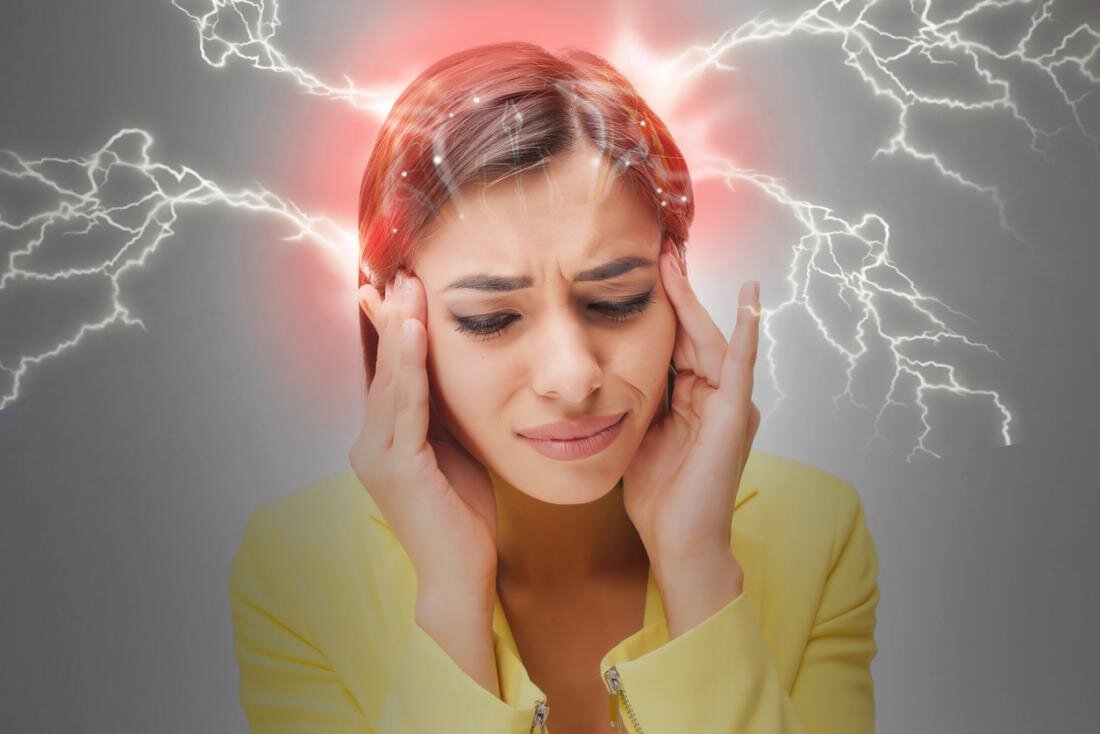An strong headache called a migraine can continue for several hours. The characteristic headache typically affects one side of the head, though it can also affect the back of the eye or both sides (s). The headache is typically accompanied by a strong pounding or pulsing sensation. As you can expect, migraines can significantly ruin a person’s day. Are you frequently plagued by migraine symptoms? We’ve gathered 10 natural treatments for migraine headaches that you can use at home to help with migraine headache pain relief.
1. Darkness
When a migraine starts, you might wish to dim all the lights in your room, close the curtains, and, if you can, wear an eye mask to reduce light stimulation. Many patients report that piercing, blinding, or frequently flashing lights trigger their migraine attacks. Moreover, one may become sensitive to light when having an episode. In light of this, darkness might offer quick, albeit slight, pain alleviation.
2. Silence
The second action you might want to take is to mute all sounds and auditory stimulation. In this circumstance, earplugs may come in handy, especially if there are elements of your environment that you have no control over. Loud noises are one of the most typical migraine headache triggers, just like piercing light.
3. Ice
Wrapping the affected part of one’s skull in ice wraps — which are commonly sold in pharmacies — or homemade cold compresses may drastically decrease the throbbing and pain. The same effects can also be achieved by wrapping some ice in a towel and placing it behind the head and neck while applying pressure to the throbbing site.
4. Sleep
Some people choose to “sleep off” migraine attacks to control them. While it can be challenging to relax and go to sleep during an attack, doing so once the pain has been controlled may be beneficial. Since the affected person is most likely already cuddled up in bed, in a dark environment with few sensory stimuli, gradually falling asleep comes naturally. It’s crucial to remember that irregular sleep patterns, or cycles disrupted by jet lag, excessive sleep, insufficient sleep, or frequent naps, are essential contributors to migraine episodes.
5. Massages
If you’ve ever experienced a headache or migraine, you may have tried massaging the affected area of the skull to ease the discomfort. If you can, attempt to relax while having a friend or family member massage your skull. Together with a head massage, deep rubs throughout the neck and shoulders might occasionally help to lessen migraine headache discomfort.
6. Relax
An accumulation of stress and anxiety is a component in many health issues, and both of these things can cause migraines. Discover ways to include quick de-stressing activities to your schedule, such as stretching and exercising, scheduling time with friends, or watching something you enjoy. Try to relax by taking deep breaths while experiencing a migraine attack. Although it can be challenging, breathing in control allows one to handle harsh situations far better.
7. Over the Counter (OTC) Medication
Numerous forms of over-the-counter painkillers are quite efficient at reducing migraines. For instance, painkillers like acetaminophen (Tylenol) or non-steroidal anti-inflammatory medicines (NSAIDs) like ibuprofen (Advil, Motrin) can ease moderate migraines. Some combination treatments, such as concoctions of caffeine, anti-nausea meds, or triptan derivatives, target migraine symptoms. When taking OTC meds, however, make sure to get medical advice first and adhere to all directions since an excessive dosage can result in additional medical issues. In the worst situation, taking over-the-counter painkillers frequently can also lead to headaches.
8. Diet
Certain meals, such packaged and processed foods, might cause migraines to start. Foods that are very salty or that have artificial sweeteners, preservatives, or too much caffeine might also make a migraine worse. The same is true of alcoholic beverages like beer and wine. Even though it could be challenging to totally abstain from your favorite foods, doing so in moderation can at least help you prevent migraine attacks.
9. Keep a Record
Did you experience a migraine yesterday? If so, make sure to document it right away, along with what you were doing a few hours prior. You can find potential triggers such as stimulants, situations, or habits by keeping a thorough record of each migraine attack. By reducing those triggers with this knowledge in hand, you might be able to completely avoid future migraine attacks. Recording the specifics of your attacks will also help your doctor figure out the best method to assist you manage your migraine headaches if your attacks are severe and have a high rate of recurrence.
10. Maintain a Healthy, Rested Lifestyle
To sum up, the best method to avoid migraine attacks is to keep a healthy lifestyle and sleep routine. Your immune system will strengthen, and your body will be more resilient to migraines in the future. Also, due to its calming effects, exercise has been demonstrated to reduce the incidence of migraines.




